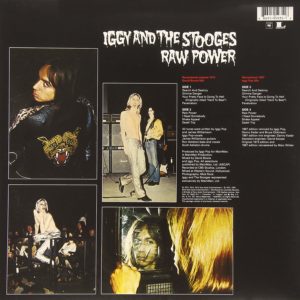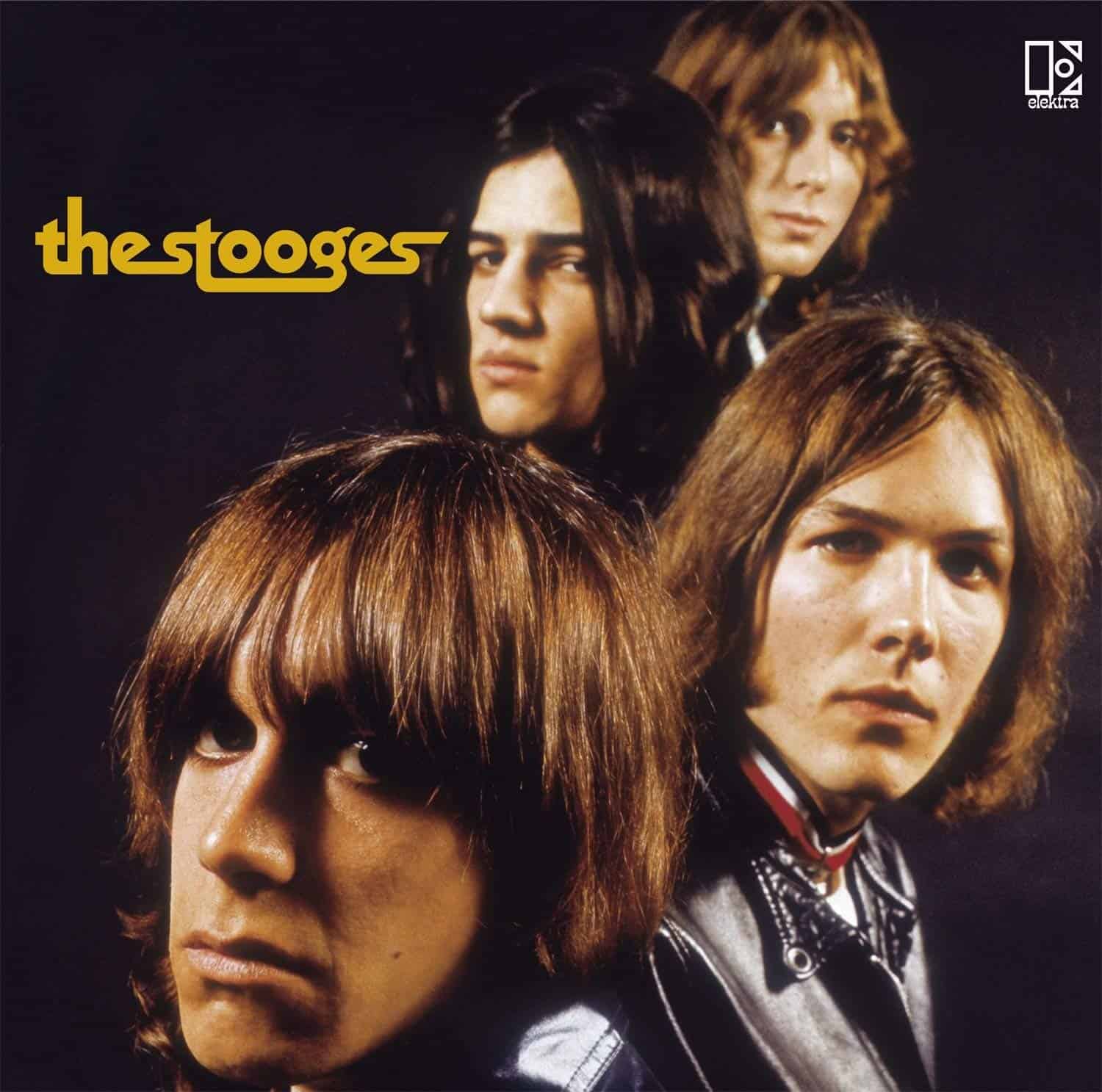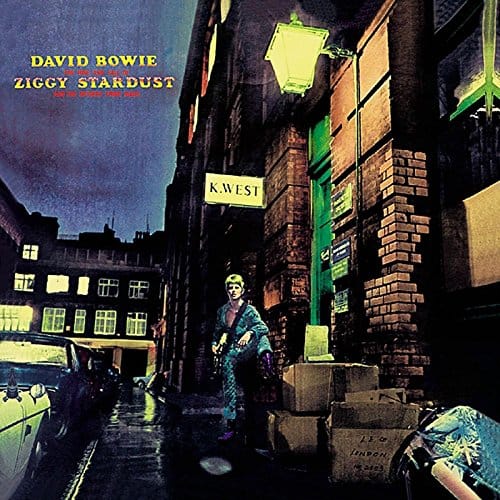Marketplace
2012 Sony Legacy Recordings PRESSING
- Catalog Number 88691959351
- Release Year 2012
- Vinyl Mastering Engineer Kevin Gray
- Pressing Weight Regular Weight
- # of Disks 2
- Jacket Style Gatefold
- Original Release Year 1973
- Original Label Columbia
- Original Catalog Number PC 32111
With the exception of a few 21st-century-reunion comeback releases, the Stooges released just three LPs—the first two as the Stooges and one more as Iggy and the Stooges. The band started in 1967 as the Stooges with singer Iggy Pop (born James Newell Osterberg, Jr.), bassist Dave Alexander, guitarist Ron Asheton, and the latter’s brother, drummer Scott Asheton. By the second album, 1970’s Fun House, the group added Steven Mackay on tenor saxophone. Soon after, the band dissolved. Pop started a bromance with David Bowie, who got the singer to sign up with his manager and helped him get a recording contract with Columbia.
In London, Pop began plans to record a new album involving guitarist and writer James Williamson as well as a revolving door of other players. When the musicians did not work out, Pop brought the Asheton brothers to England. Ron reluctantly switched to bass from guitar. The reconfigured group became Iggy and the Stooges and entered the CBS Studio in London to make Raw Power. Among other issues, the friction caused by Williamson taking over the guitar and writing chores from Ron Asheton contributed to the band’s second breakup in 1974.
If the collective’s history seems convoluted, the mixing of Raw Power is even harder to follow. Pop initially mixed the album by throwing the vocals on one track, guitar solos on a second track, and more vocals on a third track. The sound did not please everyone, so Bowie was brought in to remix. The Thin White Duke remixed all but the opening cut, “Search and Destroy,” in a single day. Bowie recalls mostly spending time adjusting vocal levels. His mix served as the official release mix in 1973.
More than a decade later, during the CD era, Columbia demanded the album be remixed for digital. Pop agreed, mostly because Columbia was going to remix it with or without his involvement. The original Pop mix did not see official release until 2010 (on CD), although a pirate disc, titled Rough Power, circulated before that time.
The analog version of Raw Power opens on each side with blistering guitar attacks—“Search and Destroy” on side one and “Raw Power” on side two. The descriptive titles—combined with really (for the time) radical photos of Pop strutting the stage shirtless, showing an emaciated torso and vampire look— function as warning signals for the aural onslaught ahead. The immortal “Search and Destroy” has been covered by countless bands, appears in multiple movies and advertisements, and remains famously tattooed on hardcore icon Henry Rollins’ back. The entire album bleeds intensity and the sonics, especially Williamson’s metallic fuzz guitar, come across with take-notice fierceness and violence. Sure, Pop sounds a bit like Jim Morrison, but this is Morrison jacked up on a nastier brand of speed. In retrospect, Iggy and the Stooges sound years ahead of their time.
Raw Power has been reissued on vinyl umpteen times by the likes of Simply Vinyl, Sundazed, Simply Music, Music on Vinyl, and, of course, Columbia. The sound quality of aforementioned versions ranges from pretty good to pretty awful. The good news: Columbia’s 2012 two-LP version stands as the crème de le crème pressing. Carefully mastered by Kevin Gray of Cohearent Audio, it includes the Bowie mix on one LP and the 1993 Pop remix on a second LP. The acid test of whether an engineer properly dialed in the music relates to whether or not it falls apart at loud volumes. Columbia’s reissue passes the test with flying colors, maintaining the textures of guitars and voices even more convincingly than the original.
Raw Power



 4.5
4.5



